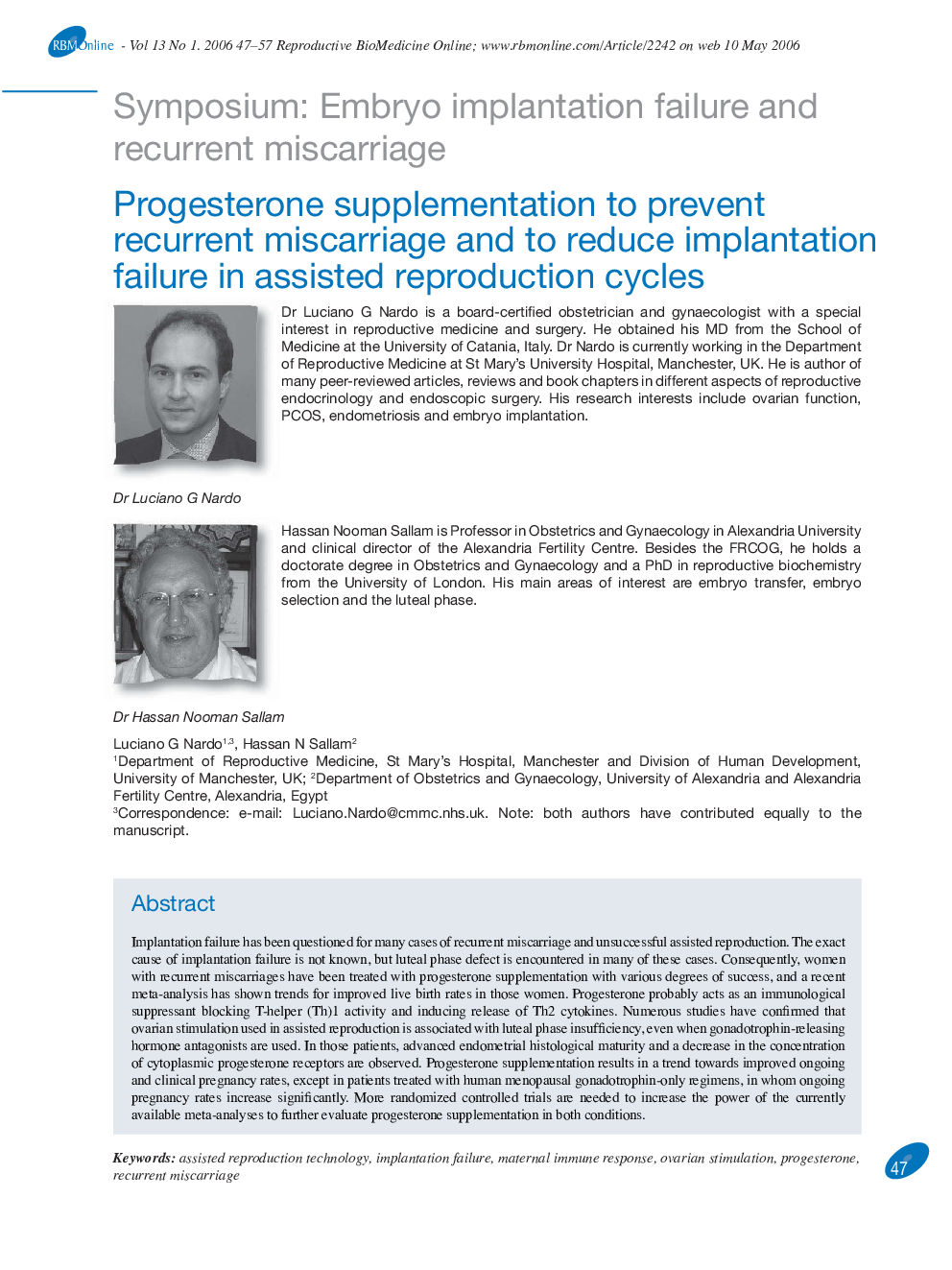| Article ID | Journal | Published Year | Pages | File Type |
|---|---|---|---|---|
| 3972920 | Reproductive BioMedicine Online | 2006 | 11 Pages |
Implantation failure has been questioned for many cases of recurrent miscarriage and unsuccessful assisted reproduction. The exact cause of implantation failure is not known, but luteal phase defect is encountered in many of these cases. Consequently, women with recurrent miscarriages have been treated with progesterone supplementation with various degrees of success, and a recent meta-analysis has shown trends for improved live birth rates in those women. Progesterone probably acts as an immunological suppressant blocking T-helper (Th)1 activity and inducing release of Th2 cytokines. Numerous studies have confirmed that ovarian stimulation used in assisted reproduction is associated with luteal phase insufficiency, even when gonadotrophin-releasing hormone antagonists are used. In those patients, advanced endometrial histological maturity and a decrease in the concentration of cytoplasmic progesterone receptors are observed. Progesterone supplementation results in a trend towards improved ongoing and clinical pregnancy rates, except in patients treated with human menopausal gonadotrophin-only regimens, in whom ongoing pregnancy rates increase significantly. More randomized controlled trials are needed to increase the power of the currently available meta-analyses to further evaluate progesterone supplementation in both conditions.
